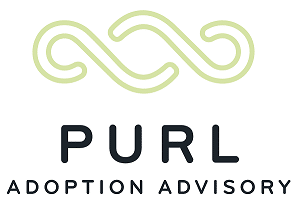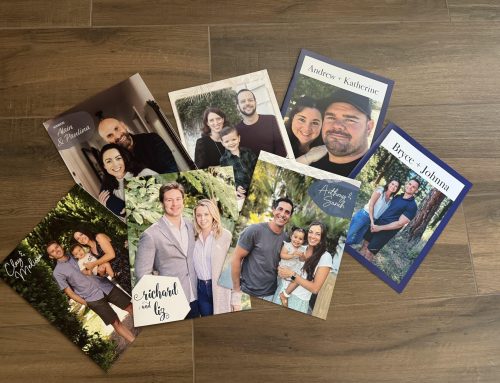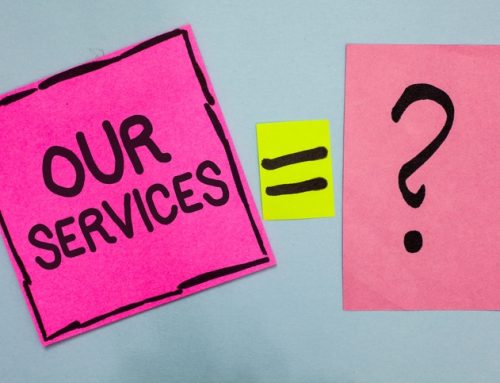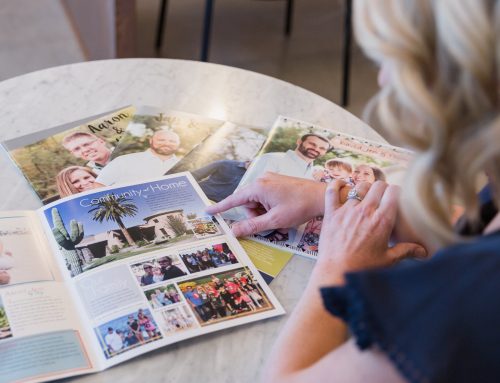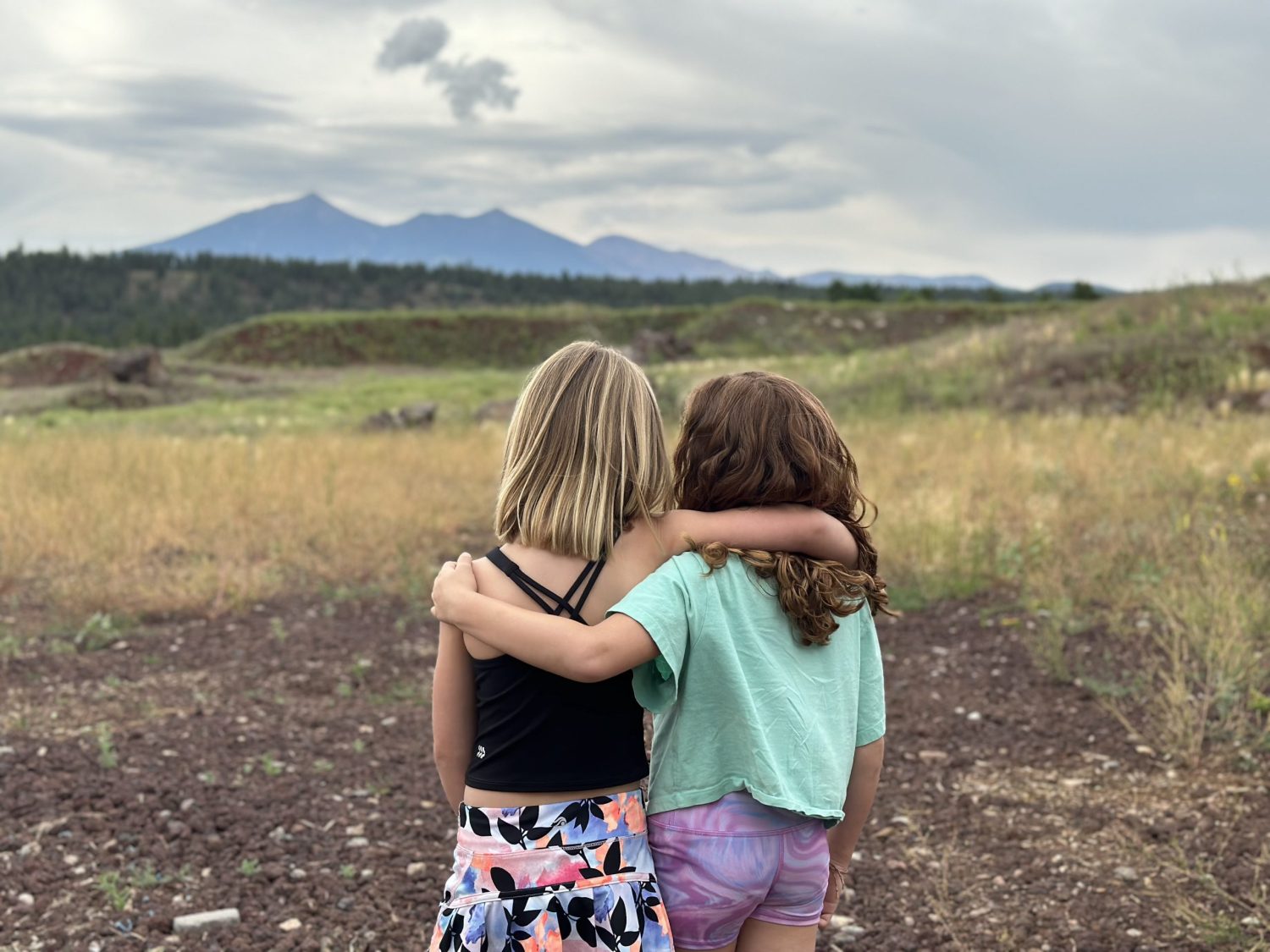
As you may know, I (Katie – Founder/CEO) have two daughters that are only eight months apart in age. We are that cliche that everyone talks about, we discovered a very unexpected pregnancy after already being placed with our daughter through adoption. Before someone asks, it was not because we “relaxed and stopped trying and then it just happened.” There was nothing relaxing about the adoption process or the adoption disruption we had around the time we must have conceived our younger daughter. But, we were very lucky to have become pregnant naturally after being unsuccessful in multiple rounds of fertility treatments, and we feel so lucky to have our two daughters. But parenting is difficult no matter what, and having a child through adoption and a biological child can present some unique situations and considerations for siblings through adoption, especially if they are close to the same age, or if they are of a different ethnicity. What we’ve learned over the last few months is that parenting an adoptee and a biological child close in age requires some education for both of our children.
There were early challenges to parenting siblings by way of adoption, and new challenges now
Having two daughters so close in age did bring about unique challenges for us at the time, juggling a newborn while pregnant and then two infants at different stages of development. Now, we have two girls that are the best of friends (and worst enemies, depending on the day) and they are built-in playmates. My girls are now 7.5 and almost 7 years old, and we have seen new challenges arise in this phase of their lives.
As soon as I learned I had a viable pregnancy I started thinking about what in the world my life would look like with two girls almost the same age, something often referred to as “virtual twins”. Beginning even back then, we thought long and hard about whether to keep them in the same grade, or whether to separate them even though they technically both could be in the same grade in school. Eventually, as the girls were about to start Kindergarten we made the final decision to give my younger daughter the “gift of time”, and ensure they were in different grades in school. We ultimately made this decision to prevent unnecessary competition between two very different girls. However, my girls have always wanted to be in the same class at church, in after-school activities they both participate in, and in summer camps, and we’ve tried hard to accommodate that so that they have someone they know and love in all these activities. It’s funny, they always seem to come home with different friends as if they don’t interact much once they settle in, but they have that comfort of knowing someone else when it begins.
Our family makeup prompts questions about adoption
What we have found through this is that two girls, approximately the same age, but looking very different, prompt a lot of questions for my daughters and have sometimes forced a conversation about adoption, similar to what I would guess transracial adoptive families must experience. I feel I have done a good job discussing adoption with our daughter and she has the benefit of an open adoption with her birth mother and her family. But this summer I realized I haven’t done a great job preparing my daughters for the questions that would arise from our interesting family makeup due to adoption. For example, this summer, my girls have been in many summer camps and have been in the same group. Everyone seems to understand that they are sisters, but can’t figure out how they are both the same age or why they don’t look alike. When that question first was raised by a classmate in a summer camp at the local zoo, our older daughter volunteered that the reason they are so close in age and why they don’t look alike is because she was adopted. That prompted so many questions from everyone in their group, questions like “Why were you adopted”, “Which family do you like better”,”What is your real family like?” “So your sister isn’t your ‘real sister?'” At first, I think my daughter enjoyed the attention and happily answered the questions as she knew how, but after reflecting on these conversations in the evening before bed, both girls came home with their feelings a little hurt. So when I heard some kids at their drama camp this week talking about the Zimmerman girls as “adoptive sisters”, I bristled and said, likely a little too harshly, “they aren’t “adoptive sisters” they are just sisters!”
As parents to siblings through adoption, I needed to give them both tools
I realized that while we talk openly about adoption in our home and in our extended family, I hadn’t really given my daughters the language or tools to respond (or not respond) when they get questions from classmates, friends and peers – the ones most likely to ask the most inappropriate questions. These peers don’t have the knowledge or education about adoption that I have provided my daughters. They haven’t heard about positive adoption terminology, they may never have met a child who was adopted, and their families may not have exposed them to the different types of diversity they may have in their schools and activities, and they don’t have many books about adoption in their children’s library. Hearing about this incident at camp reminded me to better prepare my daughter who is an adoptee for these types of questions, and also prepare her sister on how to be a ally in this situation. We reminded our daughter afterward that she didn’t have to share anything about her adoption if she didn’t want to. She could simply say her sister and she are close in age and she looks like other people in her family or say something coy like she once did as a young child “it is just ‘magic'”. We role-played with questions she received as well as other ways she could answer these and other questions she might be asked in the future. This incident also reminded us to coach our younger daughter that this is her sister’s story to tell, not hers. So our younger daughter shouldn’t be sharing her sister’s adoption story unless her sister chooses to share that information and she too may have to come up with some coy answers that shut down the discussion. There may be times our daughter through adoption wants to share it and times she doesn’t and we have to give her the space and tools to talk about her adoption when and how she wants. But her sister can be her ally and advocate and support her in whatever discussion she wants to have about adoption.
Be prepared to equip your kids to discuss adoption when and how they want, and educate other family members as well
So this is just a brief reminder that equipping your kids to deal with their adoption is so important and that may look very different over time and it will look different in different families. Give them the tools to discuss adoption when they want and maybe even role-play what that might look like when they get questions at school, camp or after-school activities. But that education does not just end at your child through adoption, it will likely involve other family members as well. If you’re a transracial adoptive family, you will likely be dealing with this more often and earlier than a family where the child looks more similar to their adoptive parents, or where there aren’t siblings the same age as in my family. But no matter what, make sure you are also giving your children the space to keep that story to themselves if they want and encourage them that it is only their decision to decide if and when to share that information with their peers.
If you’d like to learn more about adoption and some of the other adoption education we provide, check out our Learn page. For more information about our services, click here. If you want to learn more about the unique support we give our families, click here. If you’re ready to get started in your adoption journey, or your adoption journey needs a jumpstart and you’re ready to schedule a free consultation, click here.

As you may know, I (Katie – Founder/CEO) have two daughters that are only eight months apart in age. We are that cliche that everyone talks about, we discovered a very unexpected pregnancy after already being placed with our daughter through adoption. Before someone asks, it was not because we “relaxed and stopped trying and then it just happened.” There was nothing relaxing about the adoption process or the adoption disruption we had around the time we must have conceived our younger daughter. But, we were very lucky to have become pregnant naturally after being unsuccessful in multiple rounds of fertility treatments, and we feel so lucky to have our two daughters. But parenting is difficult no matter what, and having a child through adoption and a biological child can present some unique situations and considerations for siblings through adoption, especially if they are close to the same age, or if they are of a different ethnicity. What we’ve learned over the last few months is that parenting an adoptee and a biological child close in age requires some education for both of our children.
There were early challenges to parenting siblings by way of adoption, and new challenges now
Having two daughters so close in age did bring about unique challenges for us at the time, juggling a newborn while pregnant and then two infants at different stages of development. Now, we have two girls that are the best of friends (and worst enemies, depending on the day) and they are built-in playmates. My girls are now 7.5 and almost 7 years old, and we have seen new challenges arise in this phase of their lives.
As soon as I learned I had a viable pregnancy I started thinking about what in the world my life would look like with two girls almost the same age, something often referred to as “virtual twins”. Beginning even back then, we thought long and hard about whether to keep them in the same grade, or whether to separate them even though they technically both could be in the same grade in school. Eventually, as the girls were about to start Kindergarten we made the final decision to give my younger daughter the “gift of time”, and ensure they were in different grades in school. We ultimately made this decision to prevent unnecessary competition between two very different girls. However, my girls have always wanted to be in the same class at church, in after-school activities they both participate in, and in summer camps, and we’ve tried hard to accommodate that so that they have someone they know and love in all these activities. It’s funny, they always seem to come home with different friends as if they don’t interact much once they settle in, but they have that comfort of knowing someone else when it begins.
Our family makeup prompts questions about adoption
What we have found through this is that two girls, approximately the same age, but looking very different, prompt a lot of questions for my daughters and have sometimes forced a conversation about adoption, similar to what I would guess transracial adoptive families must experience. I feel I have done a good job discussing adoption with our daughter and she has the benefit of an open adoption with her birth mother and her family. But this summer I realized I haven’t done a great job preparing my daughters for the questions that would arise from our interesting family makeup due to adoption. For example, this summer, my girls have been in many summer camps and have been in the same group. Everyone seems to understand that they are sisters, but can’t figure out how they are both the same age or why they don’t look alike. When that question first was raised by a classmate in a summer camp at the local zoo, our older daughter volunteered that the reason they are so close in age and why they don’t look alike is because she was adopted. That prompted so many questions from everyone in their group, questions like “Why were you adopted”, “Which family do you like better”,”What is your real family like?” “So your sister isn’t your ‘real sister?'” At first, I think my daughter enjoyed the attention and happily answered the questions as she knew how, but after reflecting on these conversations in the evening before bed, both girls came home with their feelings a little hurt. So when I heard some kids at their drama camp this week talking about the Zimmerman girls as “adoptive sisters”, I bristled and said, likely a little too harshly, “they aren’t “adoptive sisters” they are just sisters!”
As parents to siblings through adoption, I needed to give them both tools
I realized that while we talk openly about adoption in our home and in our extended family, I hadn’t really given my daughters the language or tools to respond (or not respond) when they get questions from classmates, friends and peers – the ones most likely to ask the most inappropriate questions. These peers don’t have the knowledge or education about adoption that I have provided my daughters. They haven’t heard about positive adoption terminology, they may never have met a child who was adopted, and their families may not have exposed them to the different types of diversity they may have in their schools and activities, and they don’t have many books about adoption in their children’s library. Hearing about this incident at camp reminded me to better prepare my daughter who is an adoptee for these types of questions, and also prepare her sister on how to be a ally in this situation. We reminded our daughter afterward that she didn’t have to share anything about her adoption if she didn’t want to. She could simply say her sister and she are close in age and she looks like other people in her family or say something coy like she once did as a young child “it is just ‘magic'”. We role-played with questions she received as well as other ways she could answer these and other questions she might be asked in the future. This incident also reminded us to coach our younger daughter that this is her sister’s story to tell, not hers. So our younger daughter shouldn’t be sharing her sister’s adoption story unless her sister chooses to share that information and she too may have to come up with some coy answers that shut down the discussion. There may be times our daughter through adoption wants to share it and times she doesn’t and we have to give her the space and tools to talk about her adoption when and how she wants. But her sister can be her ally and advocate and support her in whatever discussion she wants to have about adoption.
Be prepared to equip your kids to discuss adoption when and how they want, and educate other family members as well
So this is just a brief reminder that equipping your kids to deal with their adoption is so important and that may look very different over time and it will look different in different families. Give them the tools to discuss adoption when they want and maybe even role-play what that might look like when they get questions at school, camp or after-school activities. But that education does not just end at your child through adoption, it will likely involve other family members as well. If you’re a transracial adoptive family, you will likely be dealing with this more often and earlier than a family where the child looks more similar to their adoptive parents, or where there aren’t siblings the same age as in my family. But no matter what, make sure you are also giving your children the space to keep that story to themselves if they want and encourage them that it is only their decision to decide if and when to share that information with their peers.
If you’d like to learn more about adoption and some of the other adoption education we provide, check out our Learn page. For more information about our services, click here. If you want to learn more about the unique support we give our families, click here. If you’re ready to get started in your adoption journey, or your adoption journey needs a jumpstart and you’re ready to schedule a free consultation, click here.
